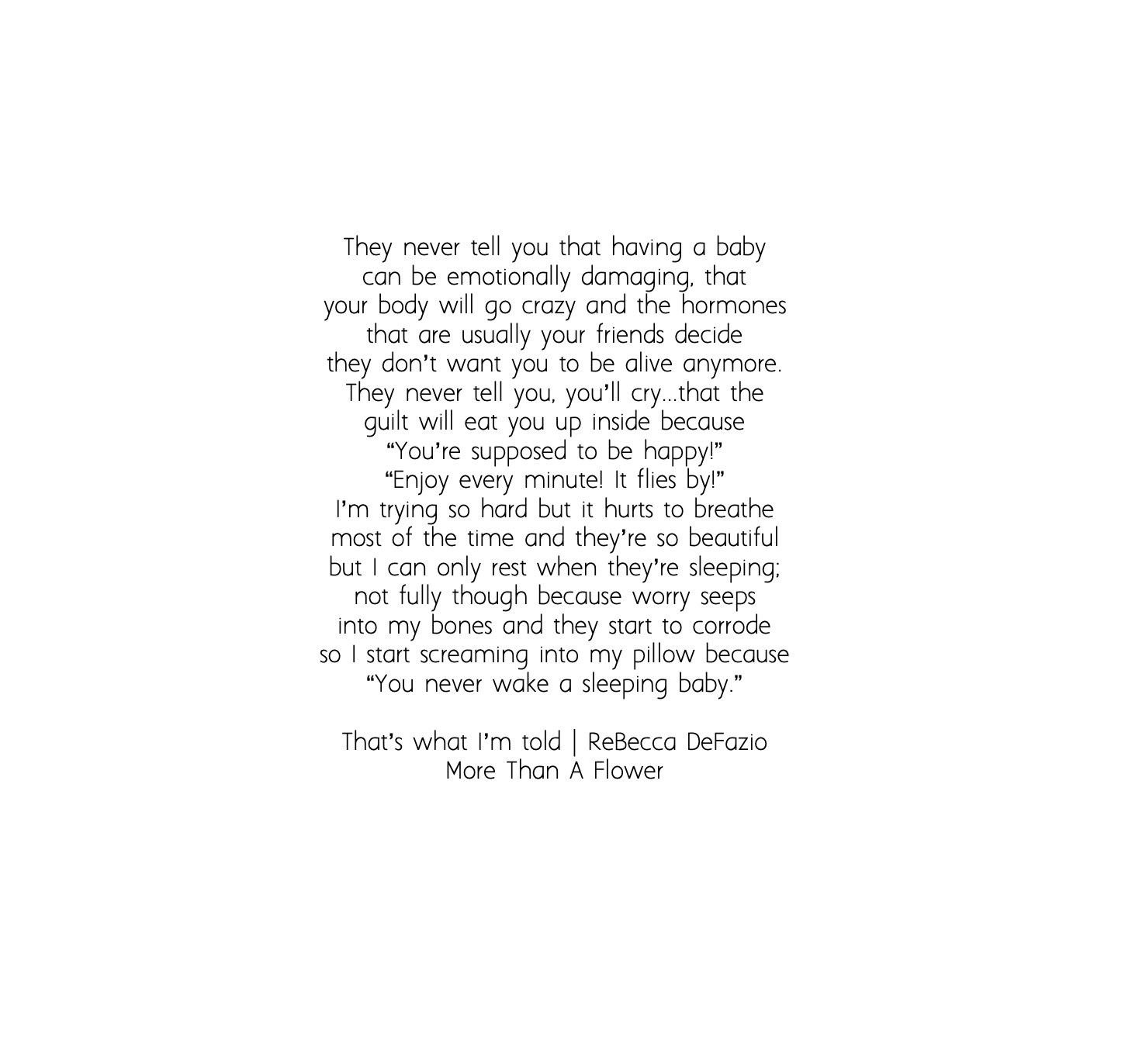View this post on Instagram
Everyone is always talking about the most beautiful parts of motherhood—especially when it comes to becoming a first-time mom.
Unless they are talking about the actual giving birth part, everything sounds so amazing. “The first time you hold your baby, it’s the most bliss-filled moment of your life! Sure, you’re tired, but that all goes away when you just look at them!”
I am not saying this is wrong; that’s not at all what this is about. This is about what they don’t say that is also true. The things that you only find out once you are feeling them, going through them, and know what questions to ask.
There are dark moments in motherhood. Maybe not all mothers feel them, but so many do, and they are left feeling alone, guilty, and incompetent compared to those around them who have made them feel like motherhood is pure magic and perfection.
After I had my second child, Oliver, just under two years after having my first child, Aubrey, I struggled with coping under the pressure of having two babies so close together. Especially since I was still breastfeeding my firstborn and had decided to tandem nurse.
I felt drained and sad in ways that I couldn’t express very well in an open manner. I felt ashamed because I had thought I should have all the answers, that my “mothering instinct” would guide me, and that I would be happy. I felt guilty for not enjoying it more and like a bad mom for crying every day, losing my temper quickly, and yelling when I felt overwhelmed by the things that I couldn’t control.
Meanwhile, everyone who was on the outside was praising me for adjusting so well, doing such a great job, and how lucky I was that I could continue to breastfeed my first child as well as my second. I should have felt proud, but I just couldn’t stop feeling this brokenness that I felt was impossible to share. When my midwife had asked me how I was doing, I absolutely did not express my feelings. I was terrified to be diagnosed with postpartum depression (PPD) and have my children taken away. I know that is probably not what would have happened, but as a young mother who has PPD, I thought the worst! So, I kept my mouth shut.
I had been blogging during this time, so I was sharing some things here and there but never the really dark parts of what I was going through, because I was afraid of the judgement that could be placed on me. I had taken to writing poetry (without sharing) as a way to spill out the emotions that I needed so badly to release. I have always had a writer’s heart; I started writing stories, lyrics, and poetry at a very young age, and it has always been a huge part of my life. It had always been my dream to be “a writer,” and so writing had brought me a kind of comfort that I couldn’t find in anything or anyone else.
When I had taken a moment to share some of my poetry with someone who I thought was a close friend, I soon found out afterward that she had told a mutual friend that my work was “too dark” and that she would never read it again because of that. This was a huge blow to my already emotional mind. I felt like I was completely alone and that my thoughts and emotions had no value unless I was ready to fake a smile and pretend that motherhood was all bubbles and butterflies.
I took a break to collect my thoughts. I stopped sharing publicly, but kept writing and using poetry as a way to let out all of my sadness and my anxieties. I used poetry to cope. I made my sadness and my insane hormones into art that made me feel less alone and also gave me a way to share it with the very few people who were close to me like my husband and my mother.
I am thankful that I am stubborn, because I didn’t stop writing. If anything, everything that happened stoked a fire under me because I think we all know how it feels to have someone who you thought understood you and then how it feels to find out they never had a clue. I have always believed that we, as women, should stand together and stand united. So, even though my friend may not have understood me, I hoped that someone else would and that I could be the voice that they needed.
I wrote the poem below, “That’s What I’m Told,” very recently. I have taken a long time to speak out directly about how I felt during my time suffering with PPD, and it’s taken a long time to forgive myself, to forgive those who didn’t understand me, and to express how it truly feels to have postpartum depression. I sat down not at all thinking, “Okay, I’m going to write a poem about PPD,” but it flowed out of me so easily and in such a healing way that I couldn’t help but share it.
I hope that this poem helps new mothers who are asking “What is happening?” I hope it helps them feel like they are not alone, they are not bad mothers, they are not failures.
There are so many things that we don’t talk about enough—topics that have an endless circle of stigma around them—and my mission is to bring just a little light to them.
Hopefully by doing this and sharing my experience and my poetry, we can all feel a little bit better about our journeys through motherhood and womanhood in general.
~












Read 10 comments and reply